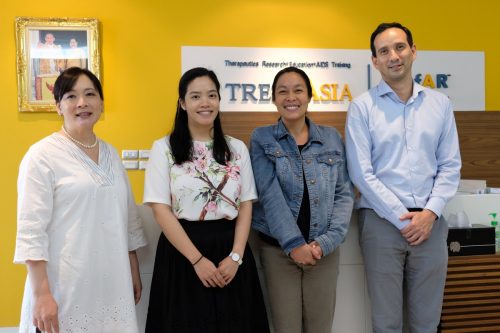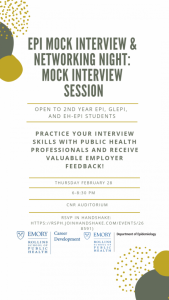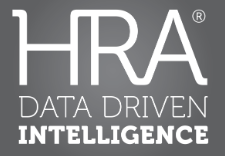Inside APE: Christina Chandra & TREAT Asia/amfAR
Category : #WeAreEmoryEPI GLEPI
For our inaugural Inside APE segment, we sat down with Christina Chandra, rising 2nd year GLEPI MPH student to talk about her work this summer with TREAT Asia/amfAR in Bangkok, Thailand.
Tell us about your APE project.
My project is called “Assessing Barriers and Facilitators to Integrating Mental Health Services and Related Guidelines into HIV Clinical Care among HIV Providers in Bangkok, Thailand” and I am working with TREAT Asia/amfAR, The Foundation for AIDS Research in – you guessed it – Bangkok, Thailand.
The study aims are:
- Understand how mental health services are or are not integrated into HIV care settings
- Assess the facilitators and barriers to the integration of mental health services in HIV care settings in Bangkok
As the principal investigator, I am responsible for everything from study design, IRB compliance, data collection, and data analysis. My co-investigators and colleagues at TREAT Asia provide guidance on all aspects of the study, translate study tools, support with participant recruitment, and more.
How did you find your APE project?
One of my former colleagues at amfAR connected me with my current field advisor, Dr. Annette Sohn, at TREAT Asia. After a few Skype discussions with the TREAT Asia/amfAR team and brainstorming sessions with my faculty mentor, Dr. Kristin Wall, we conceptualized this project.
What has the experience been like so far?
Data collection has not started, but I have already gained some insights from a few key informant interviews. For example, clinic staff seem to like simple, questionnaire screening tools for depression and anxiety, but when routine screening leads to the detection of more potential cases, it can burden referral systems to psychiatric care. Therefore, making diagnosis and treatment of common mental health conditions available in HIV clinics may be preferable but more difficult to implement than screening.
My APE has been an incredible learning experience so far, and I have also had the opportunity to meet with other public health professionals to learn about their HIV-related research in Bangkok.
Christina Chandra is a rising 2nd year GLEPI MPH student. Her research interests at Rollins include HIV and co-infections, aging, and mental health. The featured image includes (from left to right) Dr. Annette Sohn (VP, amfAR; Director, TREAT Asia), Christina Chandra, Tor Petersen (Project Manager), and Dr. Jeremy Ross (Director of Research).








Recent Comments